In a circle of radious 17 cm, two parallel chords are drawn on opposite side of a diameter The distance between the chords is 23 cm If the length of one chord is 16 cm, then the length of the other is (a) 34 cm (b) 15 cm (c) 23 cm (d) 30 cmIf y = sin^1 (2x/1x^2) sec^1 (1x^2/1x^2) 0 x 1, prove that dy/dx = If y = sin^1 (x/root 1x^2) cos^1 (1/root 1x^2) 0 x ∞, prove that dy/dx = cos1 (sin x) Differentiate the following with respect to x cot^1 (1x/1x) Differentiate the following with respect to xCOMEDK 08 If y = sin1 ((5x12 √1 x2/13)) , then (dy/dx) = (A) (3/√1 x2) (B) (12/√1 x2) (1/√1 x2) (D) (1/√1 x2) Check A

Example 3 Show I Sin 1 2x Root 1 X2 2 Sin 1 X Examples
Find dy/dx if y=sin^-1(2x/1 x^2)
Find dy/dx if y=sin^-1(2x/1 x^2)- dy/dx = (2x)/sqrt(1 x^4) siny = x^2 cosy(dy/dx) = 2x dy/dx = (2x)/cosy dy/dx = (2x)/sqrt(1 sin^2y) dy/dx=(2x)/sqrt(1(x^2)^2) dy/dx = (2x)/sqrt(1 x^4) Hopefully this helps!Solve your math problems using our free math solver with stepbystep solutions Our math solver supports basic math, prealgebra, algebra, trigonometry, calculus and more




Find Dy Dx For Y Sin 1 Cosx Where X In 0 2pi Dot
2 Answers2 Active Oldest Votes 2 Note that ( sin − 1 x) ′ = 1 1 − x 2 then apply chain rule f ( g ( x)) ′ = f ′ ( g ( x)) g ′ ( x) = 2 ( 1 x 2) − 4 x 2 ( 1 x 2) 2 1 − find the derivative of f given by f x is equal to Sin inverse X assuming it exist Kindly solve the question Please answer this question if x = sin 3 t/ (cos 2t) 1/2 , y = cos 3 t/ (cos 2t) 1/2 , find dy/dx explain in great detail if y = (1 sin2x/1 sin 2x) 1/2 show that dy/dx sec 2 (π/4 – x) = 0 donot go shortcutSolution Solution y = sin − 1 (1 x 2 2 x ) ⇒ sin y = 1 x 2 2 x ⇒ cos y = 1 − sin 2 y = 1 − (1 x 2 2 x ) 2 = 1 x 2 1 − x 2 Differentiating it wrt x, cos y d x d y = (1 x 2) 2 2 (1 x 2) − 2 x (2 x) ⇒ cos y d x d y = (1 x 2) 2 2 (1 − x 2) ⇒ d x d y = cos y 1 ((1 x 2) 2 2 (1 − x 2) ) ⇒ d x d y = 1 − x 2 1 x 2 ∗ ((1 x 2) 2 2 (1 − x 2) ) ⇒ d x d y = 1 x 2 2
Dear Teachers, Students and Parents, We are presenting here a New Concept of Education, Easy way of selfStudy This is an AudioVisual e Guide, Find dy/dx for y=sin^1(1x^2/1x^2) 1118 Hewi is building a brick wall He needs 65 bricks for each row of the wallFind Dy Dx If Y Sin 1 2x 1 X 2 hviezdoslavov kubín 7 ročník hugolin gavlovic valaska skola mravov stodola if f x x 3 x 2 x 1 then f 2 humanizmus a renesancia znaky ii rákóczi ferenc portr
Y Sin 1 2x 1 X 2 Find Dy Dx čítanie pre prvákov online šalát z červenej kapusty s jablkom čo sa oplatí študova Ex 53, 14 Find 𝑑𝑦/𝑑𝑥 in, y = sin–1 (2𝑥 √(1−𝑥^2 )) , − 1/√2 < x < 1/√2 y = sin–1 (2𝑥 √(1−𝑥^2 )) Putting 𝑥 =𝑠𝑖𝑛𝜃 𝑦 = sin–1 (2 sin𝜃 √(1−〖𝑠𝑖𝑛〗^2 𝜃)) 𝑦 = sin–1 ( 2 sin θ √(〖𝑐𝑜𝑠〗^2 𝜃)) 𝑦 ="sin–1 " (〖"2 sin θ" 〗cos𝜃 ) 𝑦 = sin–1 (sin〖2 𝜃)〗 𝑦 = 2θIf y = (tan1 x) 2, prove that ( 1 x 2) 2 y 2 2x( 1 x 2)y 1 = 2 Explain in great detail If y = tan1 {
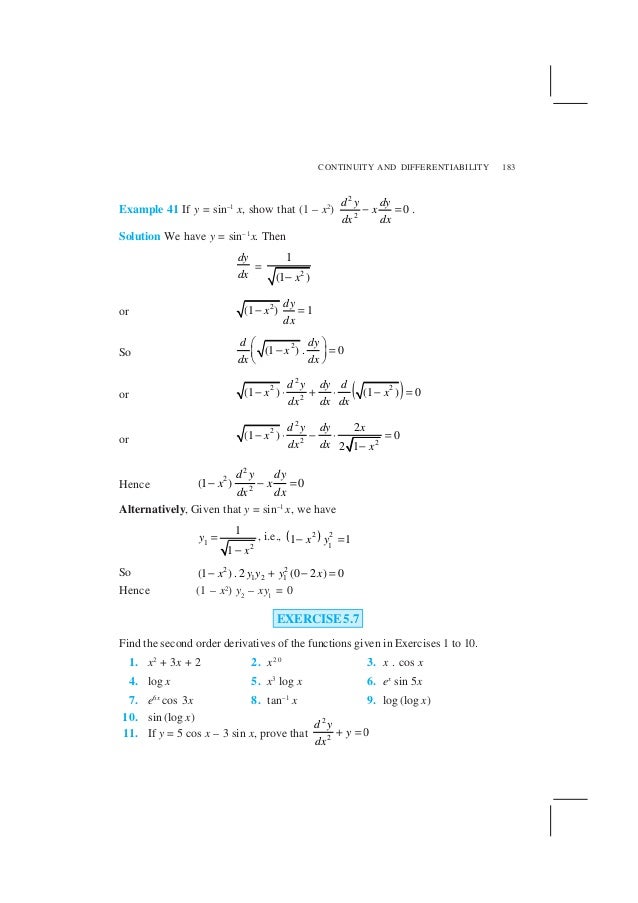



Lemh105




In Problems 1 Determine Whether The Given Chegg Com
This is the Answer of your question The answer is sin2x The picture has all the detailed steps and the formulas which are used to solve this problem Thank YouCalculus Find dy/dx y=sin (1/x) y = sin( 1 x) y = sin ( 1 x) Differentiate both sides of the equation d dx (y) = d dx (sin( 1 x)) d d x ( y) = d d x ( sin ( 1 x)) The derivative of y y with respect to x x is y' y ′ y' y ′ Differentiate the right side of the equation Tap for more stepsSee the answer See the answer See the answer done loading




If Y Sin 1 2x Sqrt 1 X 2 Then Dy Dx Youtube



If Y Cos 1 2x 3 1 X 2 13 Then Find Dy Dx Sarthaks Econnect Largest Online Education Community
y = tan–1 (2 tan θ/ 1 tan2 θ) = tan–1 (tan 2θ) = 2θ = 2tan–1x differentiating wrto 'x' on both sides, we have (dy/dx) = 2 (d/dx) = tan−1 x = 2 (1/1 x2) ∴ (dy/dx) = (2/ 1 x2) Please log in or register to add a commentIf `y=sin^(1)((x^21)/(x^21))sec^(1)((x^21)/(x^21))` then `dy/dx` is equal to To ask Unlimited Maths doubts download Doubtnut from https//googl/9WZjCW If `y=sin^(1)((x^21So y = sin (2 sin 1 sin θ) = sin 2θ dy/dθ = 2cos 2θ dy/dx = (dy/dθ)/ (dx/dθ) = 2 cos 2θ/ cos θ = 2 (1 – 2 sin 2 θ)/√ (1 – sin 2 θ) = (2 – 4 x 2 )/√ (1 – x 2) Hence option (1) is the answer




If Y Sin 1 2x 1 X 2 Sec 1 1 X 2 1 X 2 0ltxlt1




Ex 5 3 12 Find Dy Dx In Y Sin 1 1 X2 1 X2 Chapter 5
Find Dy/Dx for Y = Sec^(1) (1/(2x^2 1)), 0 < X < 1/Sqrt2 Get an answer for '`x sin(y) y sin(x) = 1` Find `(dy/dx)` by implicit differentiation' and find homework help for other Math questions at eNotesIf y = sin^1 (2x/(1x^2) sec^1 (1x^2)/(1x^2), then dy/dx =




If Y Sinx X Sin 1 Sqrt X Then Find Dy Dx Youtube




Ex 5 3 10 Find Dy Dx In Y Tan 1 3x X3 1 3x2 Ex 5 3
Y = sin − 1 (1 x 2 2 x ) Differentiating above equation wrt x , we have d x d y = 1 − ( 1 x 2 2 x ) 2 1 ( ( 1 x 2 ) 2 2 ( 1 x 2 ) − 2 x ( 2 x ) ) Stack Exchange network consists of 176 Q&A communities including Stack Overflow, the largest, most trusted online community for developers to learn, share their knowledge, and build their careers Visit Stack ExchangeFind D Y D X If Y = Sin − 1 ( √ 1 − X 2 )




If Y Cos 1 2x 1 X 2 Then Find Dydx




S I N 1 D E R I V A T I V E Zonealarm Results
So,the 'y' in the question,arcsin(2x/1x^2) is a little difficult to handle,so a smart substitution has been done in the form of x=tan θ which simplifies the 'y' to be equal to 2 arctan(x) Now,y=2tan^1(x) Differentiating both sides,we get dy/dx=2*1/1x^2 as derivative of tan^1(x) is 1/1x^2 And dy/dx is what was asked in the question Cheers )Find dy/dx sin{1x2/1x2 Ask questions, doubts, problems and we will help youIf y=sin^(1)((2x)/(1x^2))sec^(1)((1x^2)/(1x^2)),\ \ 0




If Y Sin 1 Sin X Then Dy Dx At X Pi 2 Is



Does Y Cos 1 X Find Dy Dx Quora
find dy dx y sin 1 x2 1 x2 Mathematics TopperLearningcom 8s1l799 find dy dx y sin 1 x2 1 x2 Mathematics TopperLearningcom 8s1l799 Want to start a profitable Education Franchisee? Now how did I know that, becuase `dy/dx` is 3x 2 2, y must be the integral of 3x 2 2 `dy/dx` differentiation and integration are opposite processes Ok, so I just integrate this and I get `x^3/3`, and there is 3 on the front, so the 3 cancels out so I just get x 3 2x KFind `(dy)/(dx)` in the following`y=sin^(1)((2x)/(1x^2))` Haryana has released the HBSE class 10 Result 21 on 11 June 21 with 100% Pass Percentage




If Y Sin 1 2x1 X 2 Sec 1 1 X 21 X 2 Show That Dydx 4 1 X 2




Find Dy Dx For Y Sin 1 Cosx Where X In 0 2pi Dot
4) We want to find dy/dx, which is on the LHS To get this dy/dx on its own we can multiply both sides by y So we get dy/dx = y log(2) 5) To finish this question we need to sub in for y and then we have an answer for dy/dx Recall y=2^x (from our original question) So we get dy/dx = (2^x)(log(2)) => our final solution If y = sin(2sin^1x), then dy/dx is equal to (A) (2 4x^2)/√(1 x^2) Sarthaks eConnect Largest Online Education Community If y = sin(2sin1x), then dy/dx is equal to (A) (2 4x2)/√(1 x2) (B) (2 4x2)/√(1 x2) (2 4x2)/√(1 x2) (D) (2 4x2)/√(1 x2) Login Remember RegisterIf y=cos^1(2xsqrt(1x^2)), find dy/dx Maharashtra State Board HSC Science (Electronics) 12th Board Exam Question Papers 164 Textbook Solutions Online Tests 60 Important Solutions 39 Question Bank Solutions Concept Notes & Videos 418 Time Tables 24 Syllabus




If Y X 2 Sin 1 X Then Dy Dx




If Y Sin Inverse 5x 12 Root 1 X2 By 13 Find Dy By Dx Brainly In
In this differentiation problem, the variable y represents a function in x Hence, it can be differentiated with respect to x and do not think that y is a constant Therefore, the function y can be differentiated by the derivative rule of logarithms 1 y × d y d x = d d xCalculus Find dy/dx y^22x=12y y2 − 2x = 1 − 2y y 2 2 x = 1 2 y Differentiate both sides of the equation d dx (y2 −2x) = d dx(1 −2y) d d x ( y 2 2 x) = d d x ( 1 2 y) Differentiate the left side of the equation Tap for more steps find dy/dx if y=sin^1(2^(x1)/14^x) Share with your friends Share 0 Dear Student, Please find below the solution to the asked query y = sin1 2 x 1 1 4 x = sin1 2 x 2 1 1 2 x 2 = sin1 2 2 x 1 2 x 2 Let 2 x = tanθ ⇒ θ = tan1 2 x ⇒ y = sin1 2 tanθ 1 tan 2 θ = sin1 sin 2 θ = 2 θ ⇒ y = 2 tan1 2 x ⇒ dy dx = 2 1
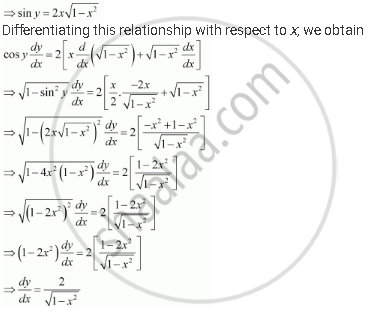



Find Dy Dx For Y Sin 1 2xsqrt 1 X 2 1 Sqrt2 X 1 Sqrt2 Mathematics Shaalaa Com




Y Cos 1 3x 4 1 X 2 5find Dy Dx Brainly In
Find dy/dx of y=x^2 2x1 We differentiate each term individually with respect to x the way we differentiate powers of x is x^n goes to nx^ (n1) So x^2 would become 2x, 2x would be just 2 as x^0 is 1 and a constant would just disappear Therefore, dy/dx=2x2 Answered byDifferentiating the given equation 1 with respect to x, d y / d x = f ′ (2 x − 1 / x 2 − 1) ∗ d / d x (2 x − 1 / x 2 − 1), by chain rule of derivatives From there, simply substitute the value of f'(x) and differentiate the inner quantity and you will end up with the value of dy/dxIf (dy/dx)y cos x=(1/2) sin 2x, y(0)=1, then y((π/2))= (A) 1 (B) e (1/e) (D) (2/e) Check Answer and Solution for above question from Mathematic
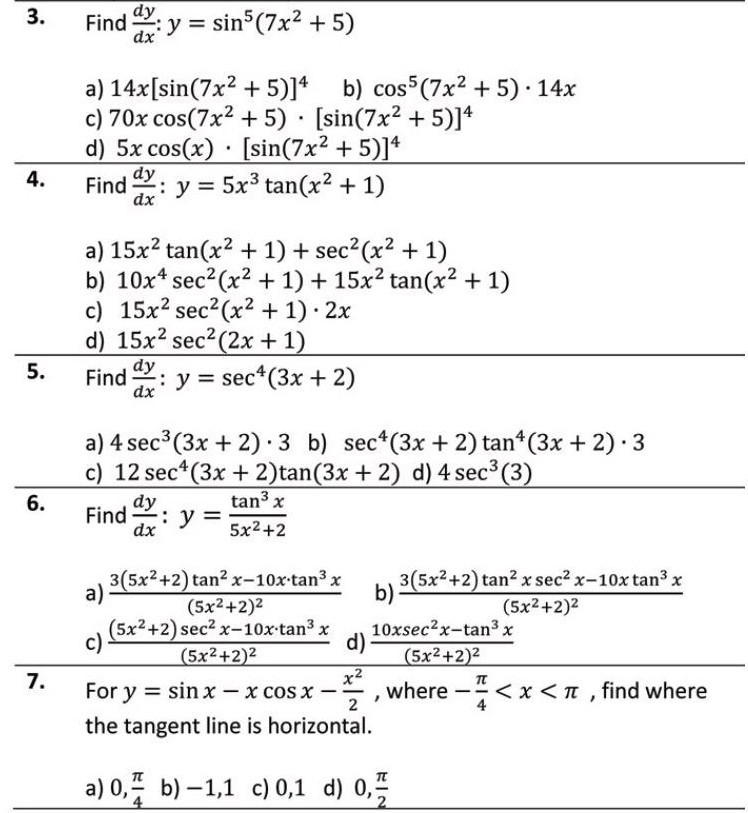



3 Find Dy Y Sin 7x2 5 A 14x Sin 7x2 5 B Chegg Com




Implicit Differentiation Advanced Example Video Khan Academy
Explanation We can use here the formula for derivative of sin−1x, which is d dx sin−1x = 1 √1 − x2 As such to find derivative dy dx for y = sin−12x using chain rule is given by dy dx = 1 √1 − (2x)2 × d dx (2x) = 2 √1 −4x2 Answer linkFree implicit derivative calculator implicit differentiation solver stepbystepFind dy/dx of ,y=1/sin (2x/1x^2) dy/dx =d sin (2x/1x^2)^1 /dx =1/sin^2 (2x/1x^2) d (2x/ 1x^2)/dx =1/sin^2 (2x/1x^2) (1x^2)d (2x)/dx 2xd (1x^2)/dx) / (1x^2)^2 =1/sin^2 (2x/1x^2) (1x^2)2 2x2x / (1x^2)^2 =1/sin^2 (2x/1




If Y 5x 1 X 2 1 3 Sin 2 2x 3 Find Dy Dx
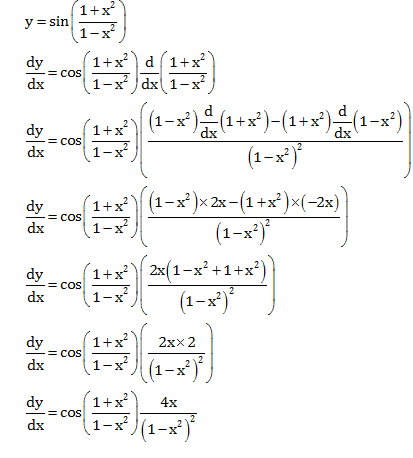



Find Dy Dx Y Sin 1 X2 1 X2 Mathematics Topperlearning Com 8s1l799
Click here👆to get an answer to your question ️ Find dy/dx if y = sin^1 ( 2^x 1/1 4^x )Answer to Find dy / dx given y = sin^{1} (x^2) By signing up, you'll get thousands of stepbystep solutions to your homework questions You canCalculus Find dy/dx y^2=1/ (1x^2) y2 = 1 1 − x2 y 2 = 1 1 x 2 Differentiate both sides of the equation d dx (y2) = d dx ( 1 1−x2) d d x ( y 2) = d d x ( 1 1 x 2) Differentiate the left side of the equation Tap for more steps



If Y Sin 2x 5 Then What Is Dy Dx Quora




If Y Sin 1 2x 1 X 2 Sec 1 1 X 2 1 X 2 0ltxlt1
Ex 53, 9 Find 𝑑𝑦/𝑑𝑥 in, y = sin^(−1) (2𝑥/( 1 2𝑥2 )) 𝑦 = sin^(−1) (2𝑥/( 1 2𝑥2 )) Putting x = tan θ 𝑦 = sin^(−1) (2𝑥/( 1Answer to Find dy/dx at x = 0 given y= 1/2 u^2 and u = 2x This problem has been solved! If y = sin^1 (x√(1 x) √x √(1 x^2) and dy/dx = 1/2 √x√(1x^2) p, then p is equal to askedin Mathematicsby ShivamK(681kpoints) jee jee mains 0votes 1answer The degree of the differential equation satisfying √(1 x^2) √(1 y^2) = kx√(1 y^2) – y√(1 x^2)




Implicit Differentiation Advanced Example Video Khan Academy




If Y Sin 1 X Prove That 1 X2 D2y Dx2 X Dy Dx 0 Explain In Great Detail Mathematics Topperlearning Com Psl1owbb
If ` y=sin ^ (1) (2x sqrt (1x^ (2))),then (dy)/ (dx)=` Watch later Share Copy link Info Shopping Tap to unmute If playback doesn't begin shortly, try restarting your device Up Next




Example 3 Show I Sin 1 2x Root 1 X2 2 Sin 1 X Examples




If Y Sin 1 2x 1 X 2 Sec 1 1 X 2 1 X 2 0ltxlt1
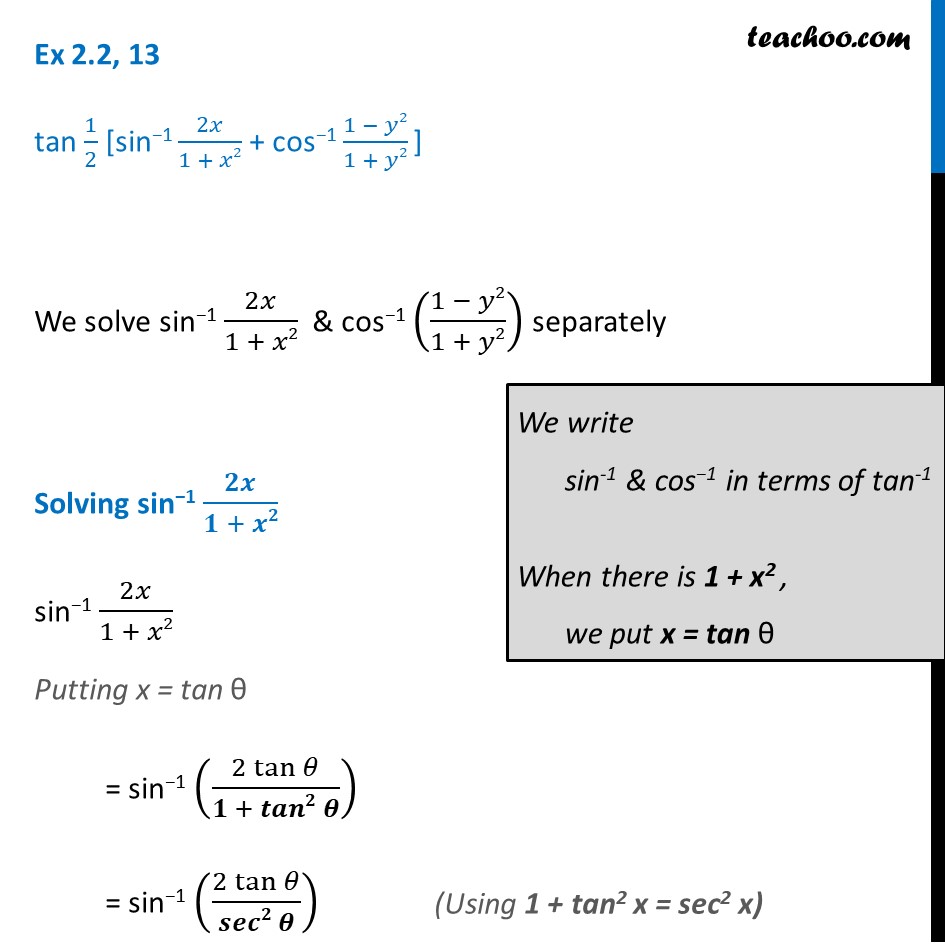



Ex 2 2 13 Inverse Trigonometry Tan 1 2 Sin 1 2x 1 X2




Find Dy Dx If Y Sin 1 6x 4sqrt 1 4x 2 5



Find Dy Dx Y Sin 1 2x 1 X 2 1 2 X 1 2 Sarthaks Econnect Largest Online Education Community




Y Sin 2sin 1x Prove That 1 X 2 Y2 Xy1 4y Maths Continuity And Differentiability Meritnation Com



1




Find Dy Dx In The Following Y Sin 1 2xsqrt 1 X 2 1
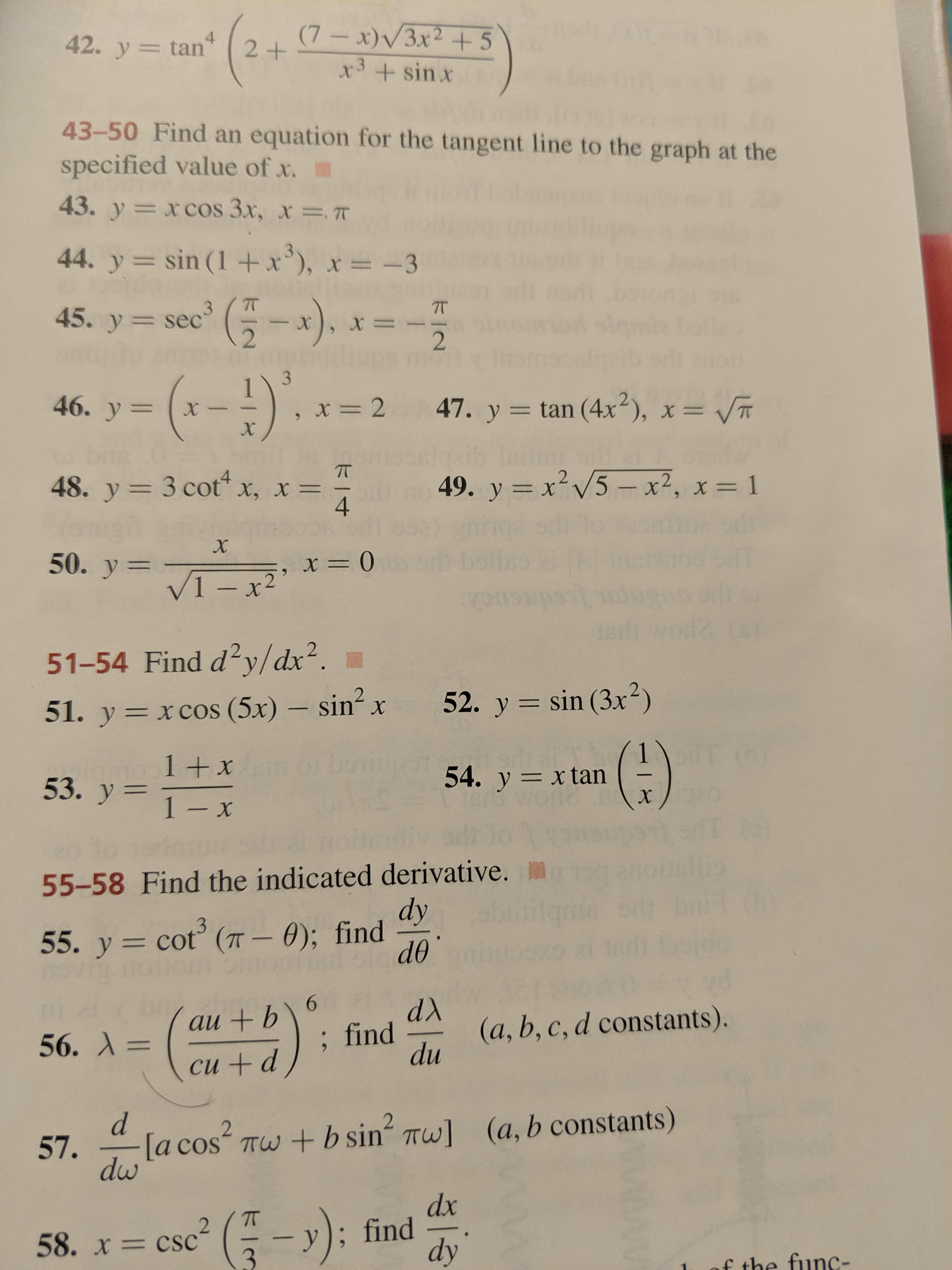



Answered 42 Y Tan X 3x2 5 X3 Sin X 4 2 43 50 Bartleby




Find Dy Dx Of Y Sin 1 2x 1 X 2 Youtube



How To Find Derivative Of Y Sin 2x 1 X 2 Quora
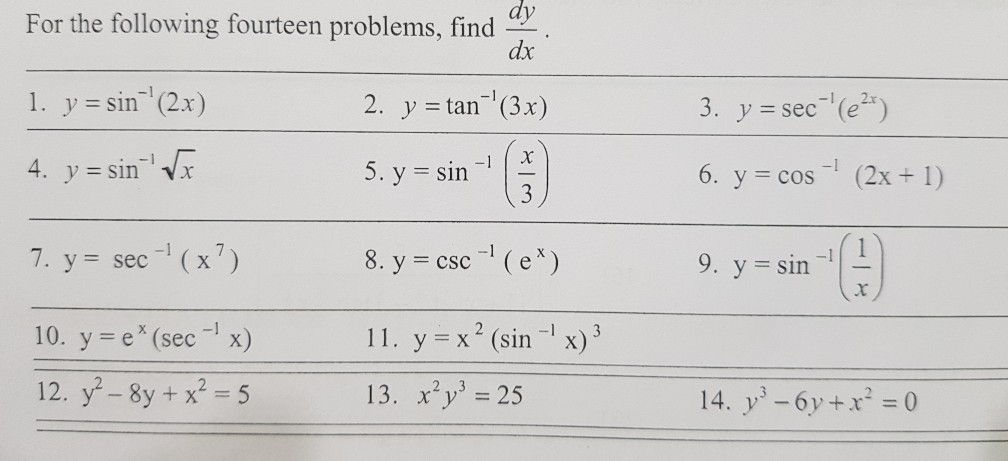



Dy Dx For The Following Fourteen Problems Find Chegg Com




Ex 5 3 14 Find Dy Dx In Y Sin 1 2x Root 1 X2 Cbse




11 Derivative Find Dy By Dx Of Y Sin 1 1 X2 Upon 1 X2 Youtube
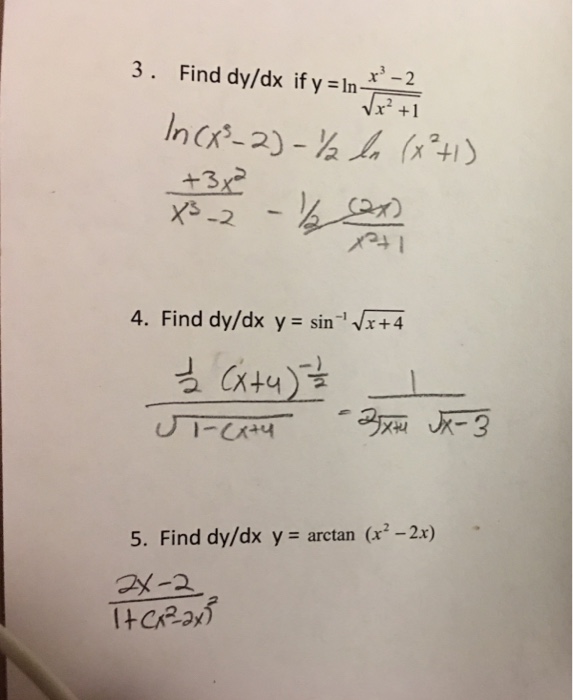



Find Dy Dx If Y Ln X 3 2 Squareroot X 2 1 Find Chegg Com




If Y Sin M Sin 1 X What Is The Value Of D 2 Y Dx 2 At X 0 Youtube




If Y Cos M Cos 1 X Show That 1 X 2 Y X Y M 2 Y 0
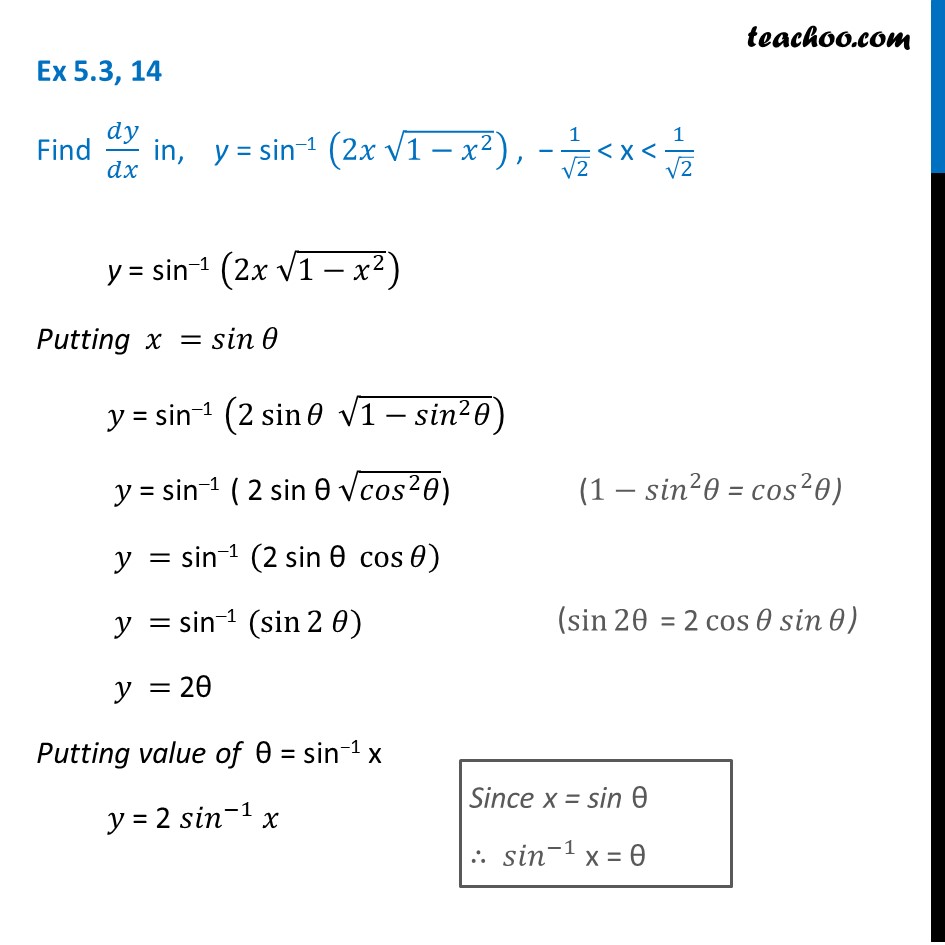



Ex 5 3 14 Find Dy Dx In Y Sin 1 2x Root 1 X2 Cbse




If Y Sin 1 5x 12 Sqrt 1 X 2 13 Find Dy Dx Youtube




Differentiate With Respect To X Y Sin 1 2x 1 X2
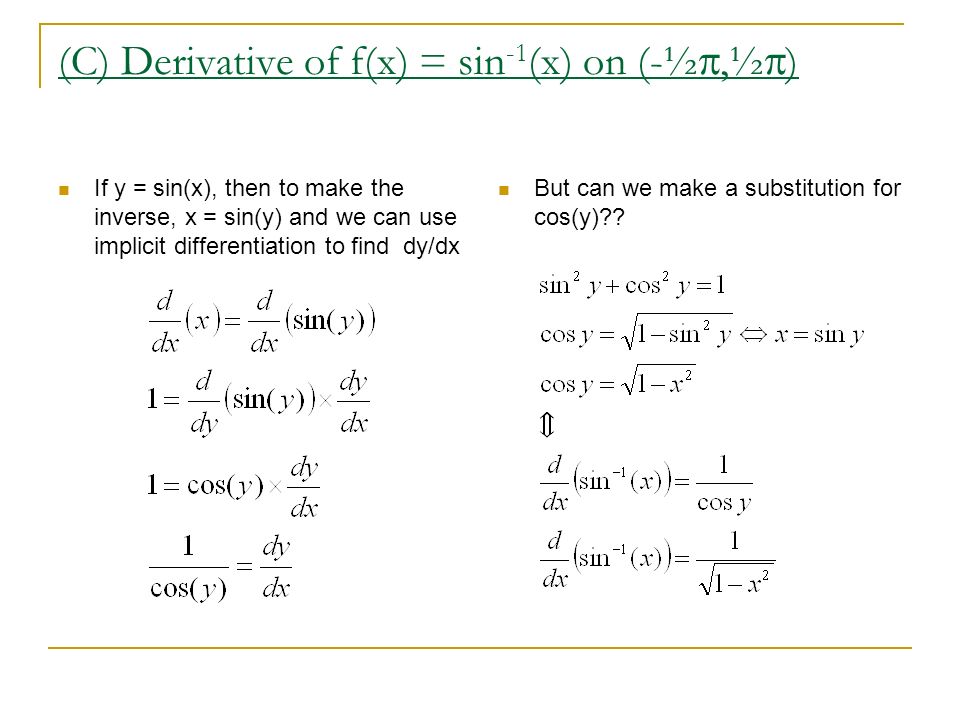



B1 6 Derivatives Of Inverse Trig Functions Ppt Download




Ex 5 3 9 Find Dy Dx In Y Sin 1 2x 1 2x2 Chapter 5



If Y Sin 2x 5 Then What Is Dy Dx Quora




If Y Sin 1 Sqrt 1 X Sqrt 1 X 2 Find Dy Dx




If Y Sin 2 Cot 1 Sqrt 1 X 1 X Then Dy Dx Is Youtube




How Do You Find The Derivative Of Sin 1 2x 1 Socratic




Y Sin 1 5x 12sqrt 1 X 2 13 Youtube
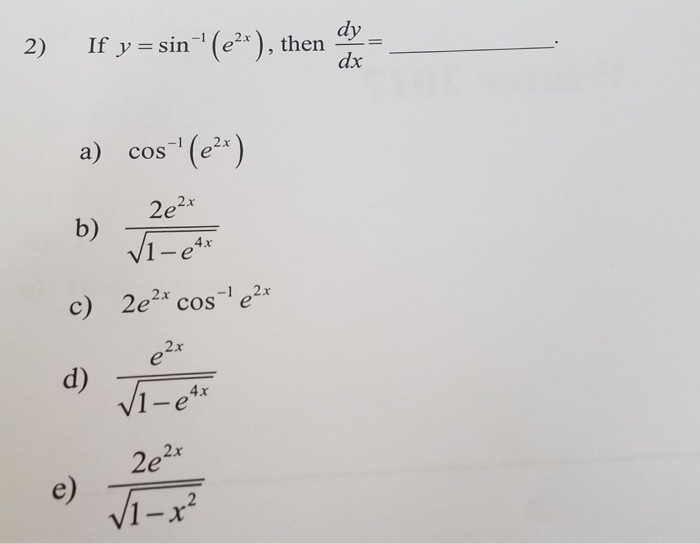



If Y Sin 1 E 2x Then Dy Dx A Chegg Com



If Y F 2x 1 X 2 1 And F X Sinx 2 Can You Find Dy Dx Quora



How To Find Dy Dx Of Sin 1 2x And Y Sin 1 2x 3 Quora




Assignment 1 If Y Xsinx Find Dx Dy 2 If Y Chegg Com



Find Dy Dx When X Cos 1 1 1 T 2 And Y Sin 1 1 1 T 2 T R Sarthaks Econnect Largest Online Education Community



Q Tbn And9gctmzxys8u9ux5sqdzotjr16mts Hcvln5rhzarzwhakw0pui5c5 Usqp Cau



1




If Y Sin 1 X 1 X2 1 2 Show That 1 X2 D2y Dx2 3x Dy Dx Y 0 Explain In Great Detail Mathematics Topperlearning Com Wa3tv55



Differentiate The Following With Respect To X Sin 1 2 X 1 3 X 1 36 X Sarthaks Econnect Largest Online Education Community




X X 1 Dy Dx X 2 Y X 3 2x 1 Novocom Top
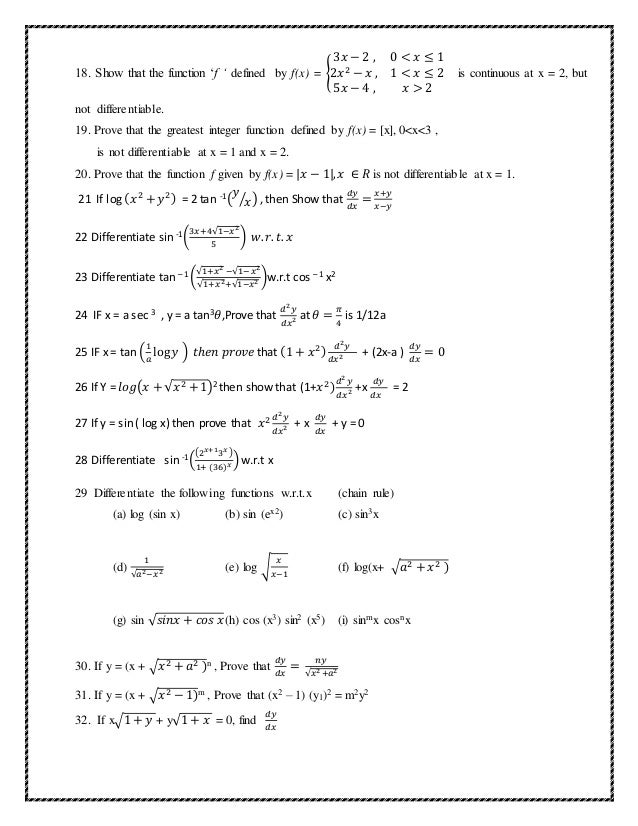



Chapter 5 Assignment




If Y Sin X 2 Cos X 2 2 Find Dy Dx At X Pi 6 Youtube
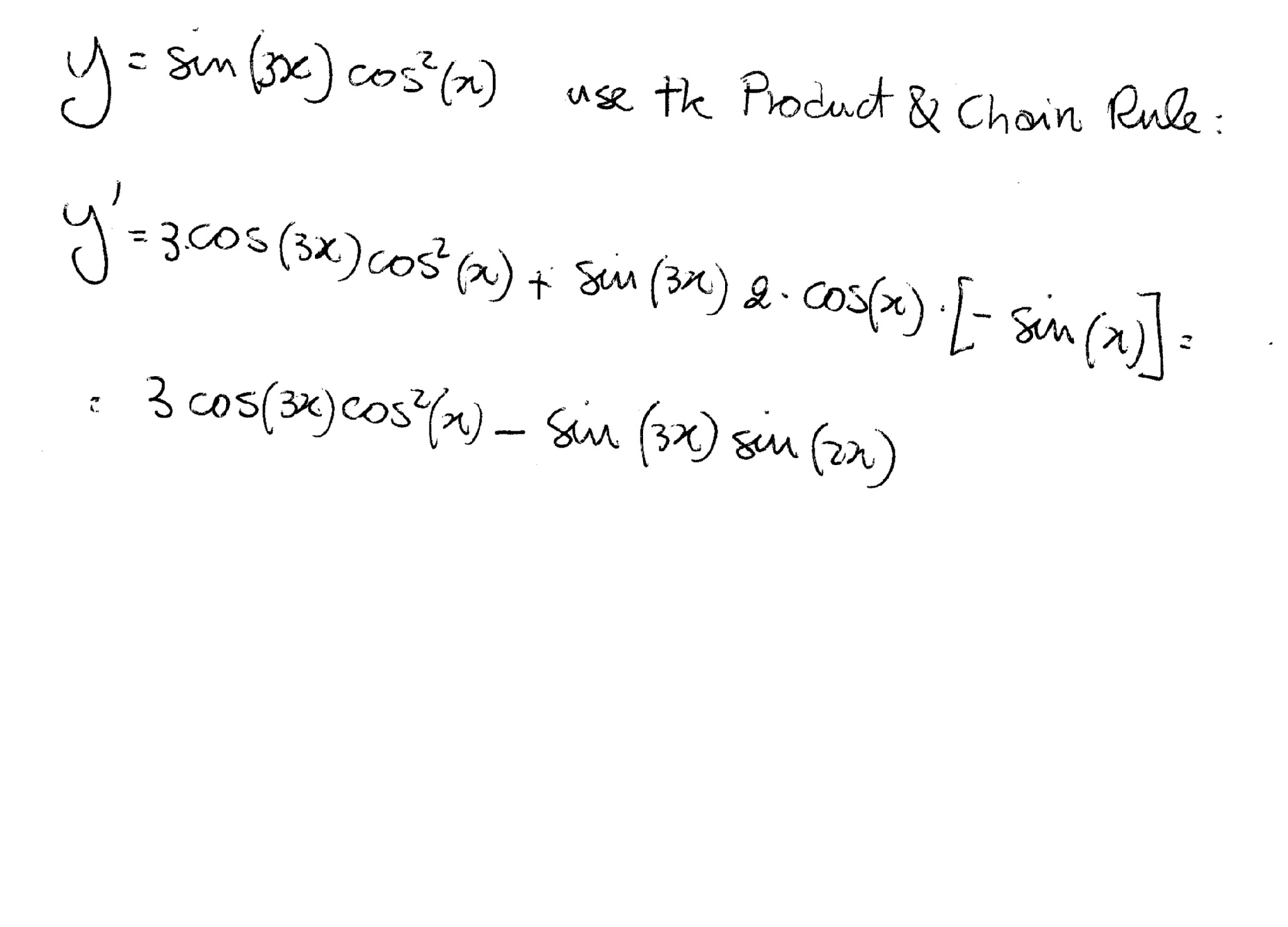



How Do You Find Dy Dx If Y Sin3x Cos 2 X Socratic




If Y Sin Inverse 5x 12 Root 1 X2 By 13 Find Dy By Dx Maths Continuity And Differentiability Meritnation Com




If Y Sin 1 3x 4x 3 Then Dy Dx




If Y Sin 1 X Sqrt 1 X Sqrtx Sqrt 1 X 2 And Dy




If Y Sin 1 X Sqrt 1 X Sqrtx Sqrt 1 X 2 And Dy Dx 1 2 Sqrt X 1 X Youtube




If Y Sin 1 X Then Show That 1 X 2 D 2y Dx 2 X Dy Dx 0 Youtube
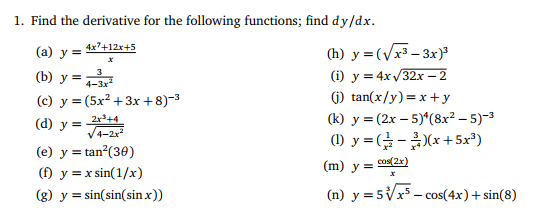



Find The Derivative For The Following Functions Find Chegg Com




Y Cos 1 3x 4 1 X 2 5find Dy Dx Brainly In



How To Differentiate Y Tan 1 2x 1 X 2 For The Inverse Trigonometric Function Quora




If Y Sin 2sin 1 X Then Dy Dx Youtube




Q35 If Y Sin 1 X 1 X X 1 X 2 Find Dy Dx Youtube



If Y Log Cos X Sin X Log Sin X Cos X 1 Sin 1 2x 1 X 2 Find Dy Dx At X P 4 Sarthaks Econnect Largest Online Education Community
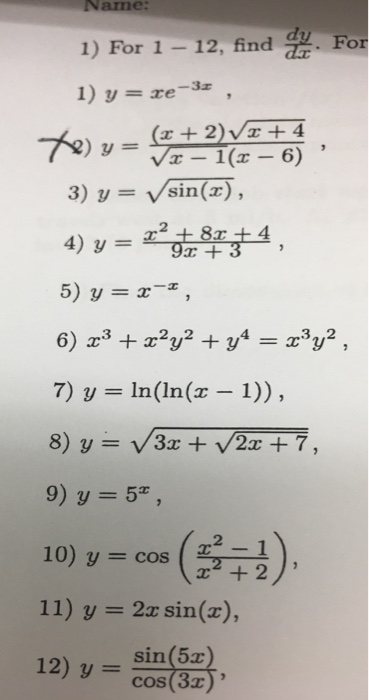



1 For 1 12 Find Dy Dx For 1 Y Xe 3x 2 Y Chegg Com



If Y Sin 1 X 2 Then Prove That 1 X 2 D 2y Dx 2 X Dy Dx 2 0 Sarthaks Econnect Largest Online Education Community
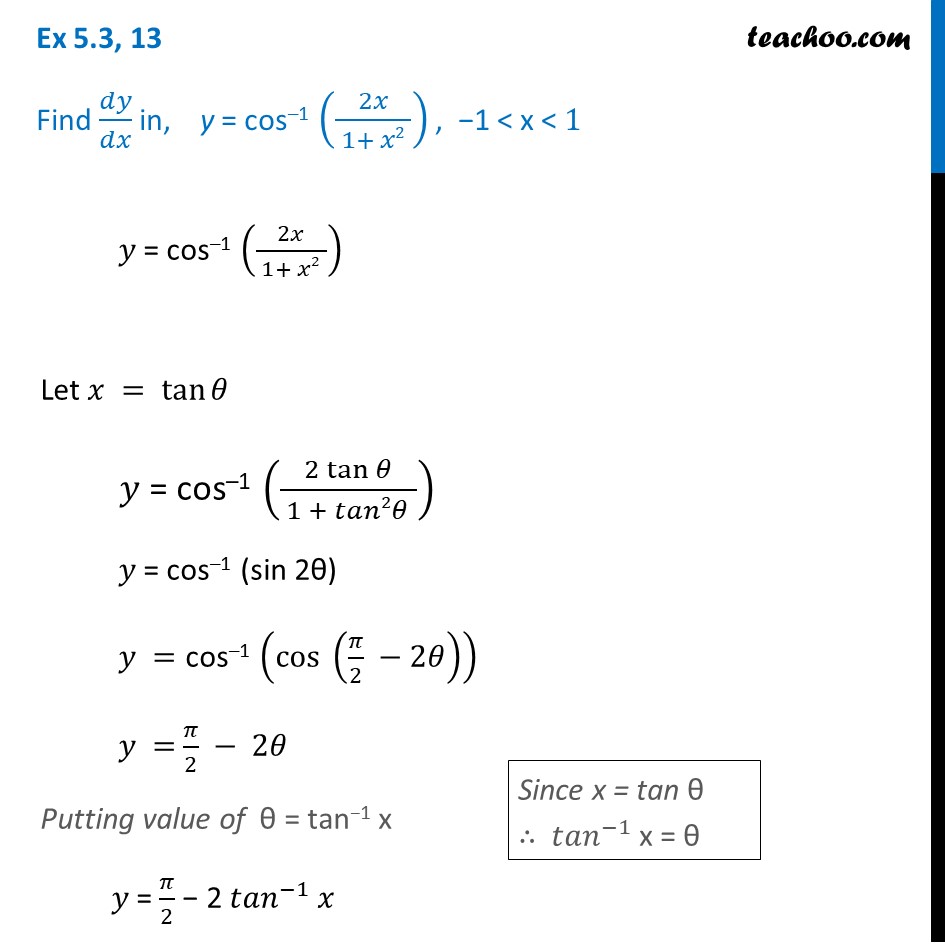



Ex 5 3 13 Find Dy Dx In Y Cos 1 2x 1 X2 Ncert Ex 5 3




If Y Sin 1 2x 1 X 2 Then Find Dy Dx Youtube
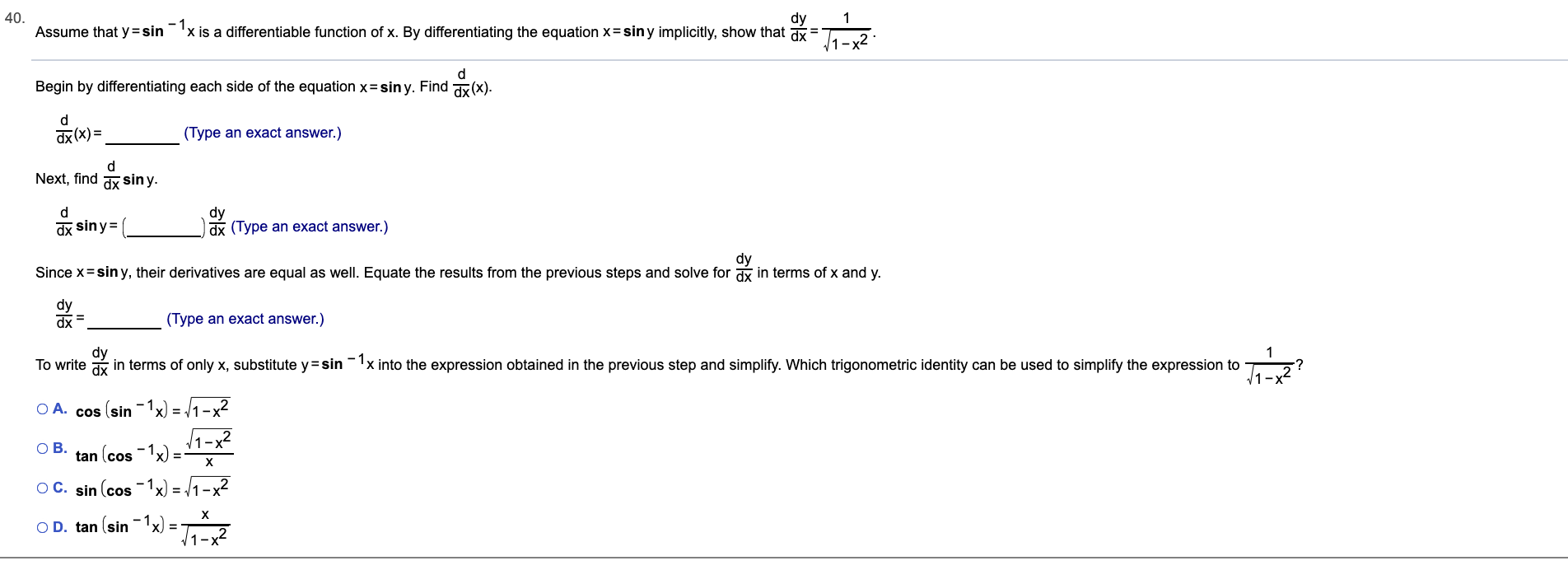



Answered 40 Dy 1 Assume That Y Sin X Is A Bartleby




Y Sin 1 2x 1 X 2 Find Dy Dxif Dy Dx 2cos 1xthis Is Class 12 The Problem Plz Help Brainly In




Find Dy Dx In The Following Y Sin 1 2x 1 X 2




If F X Sin 1 2x 1 X 2 Then F X Is Differentiable On




Please Only Need Help With 1 11 22 33 44 55 Chegg Com
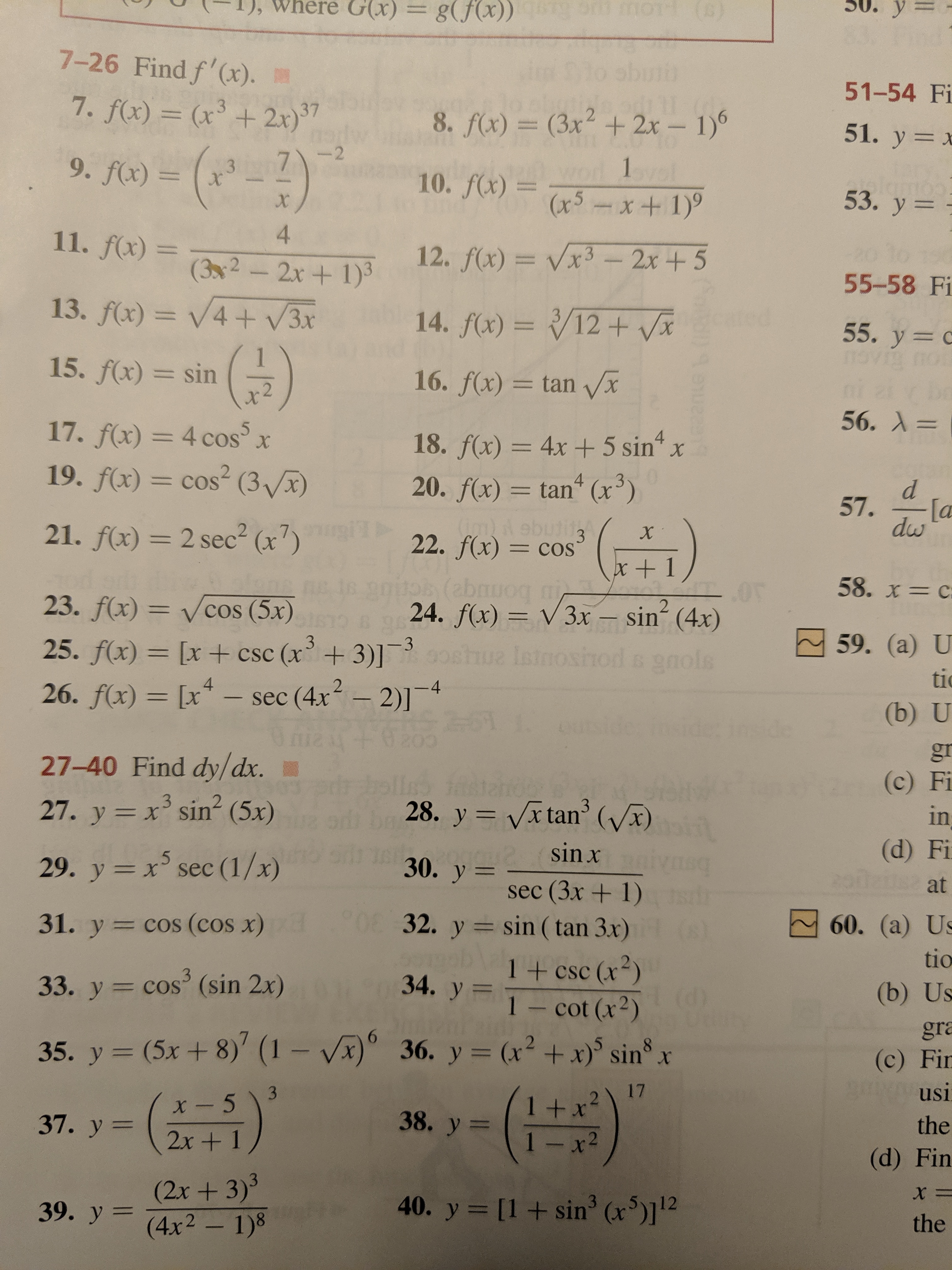



Answered G X U G Fx 00 O 7 26 Find F X Bartleby




If Y Sin 1 5x 12 1 X 2 1 2 13 Find Dy Dx Mathematics Topperlearning Com Otpu9qyy




If Y Sin 1 2x 1 X 2 Then Dy Dx Is Equal T




Q29 If Y Sin 1x 1 X2 1 2 Show That 1 X2 D2y Dx2 3x Dy Dx Y 0 Second Order Derivatives Youtube



1
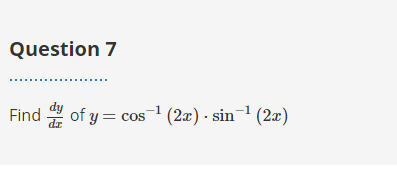



Question 7 Find Dy Of Y Cos 1 2a Sin 1 2a Chegg Com
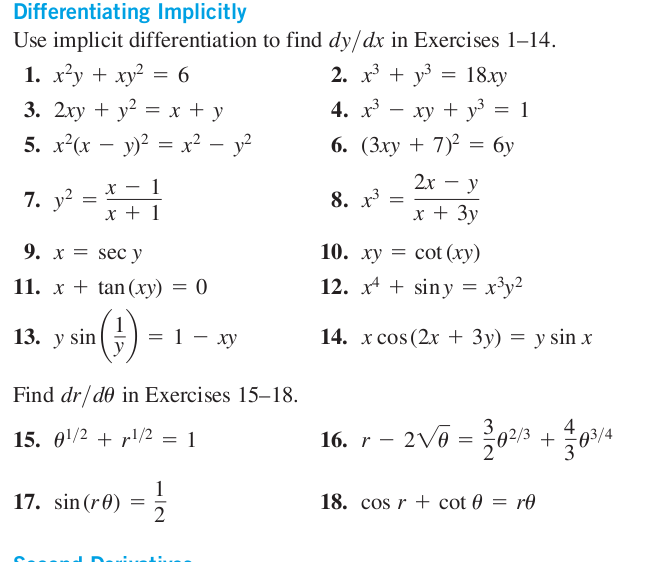



Use Implicit Differentiation To Find Dy Dx In Chegg Com




If Y Sin 1 2x 1 X 2 Sec 1 1 X 2 1 X 2 0 X 1
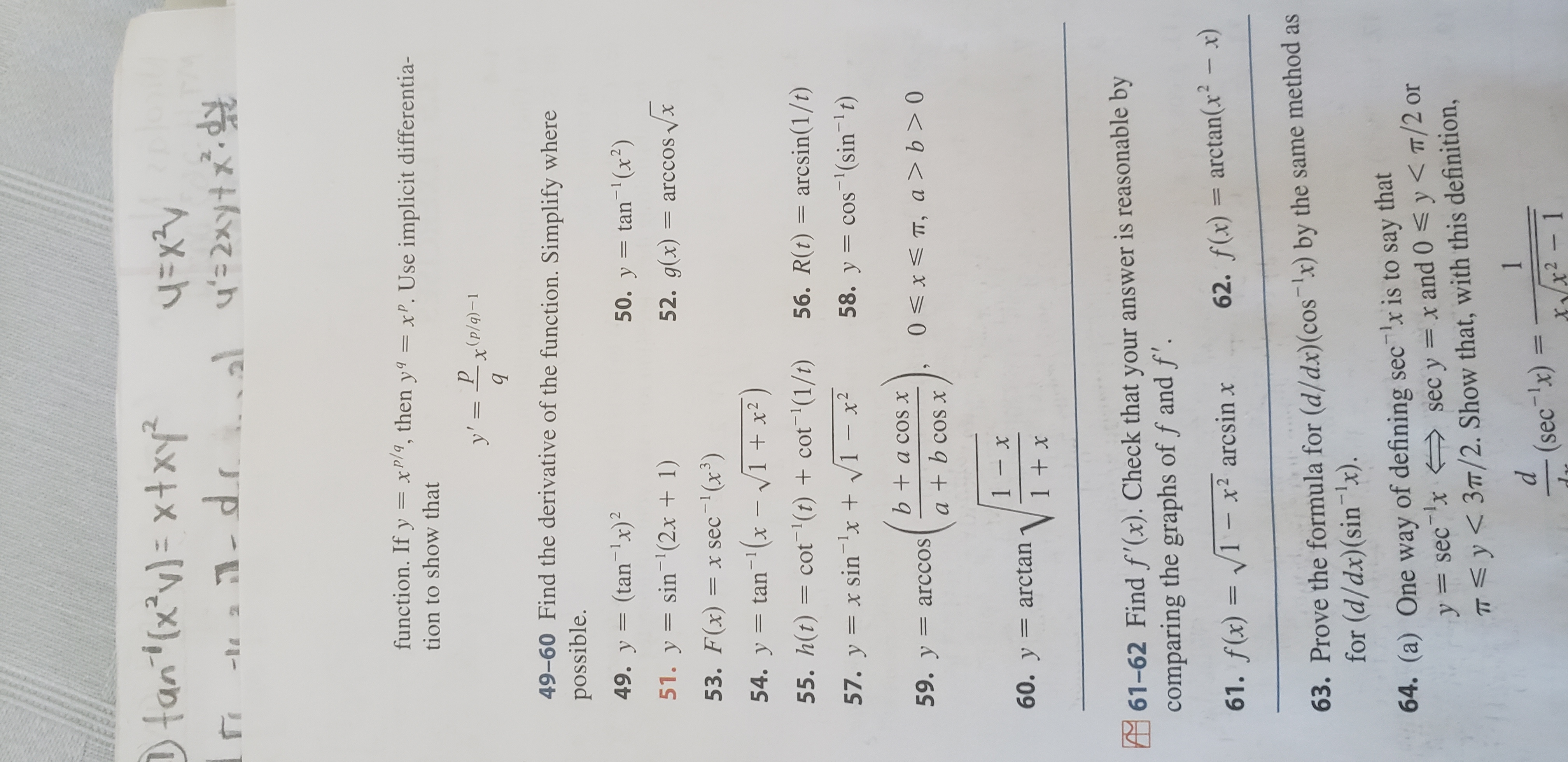



Answered Dtant X V X Xy 4 Xv Al 4 2xytx 4 Bartleby
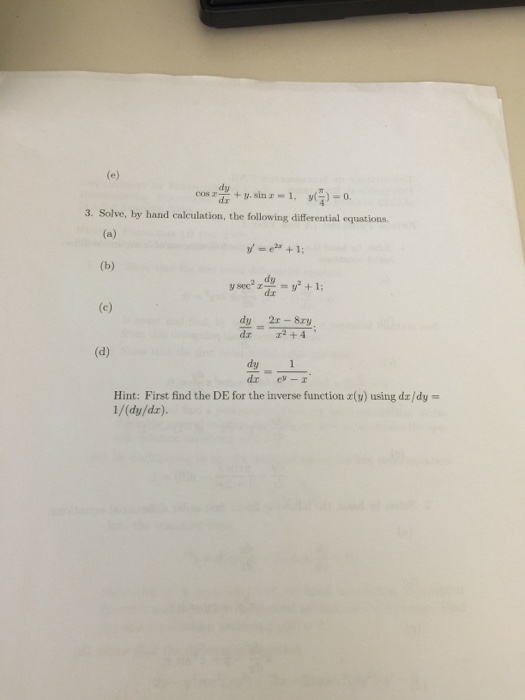



Cos X Dy Dx Y Sin X 1 Y Pi 4 0 Solve By Chegg Com
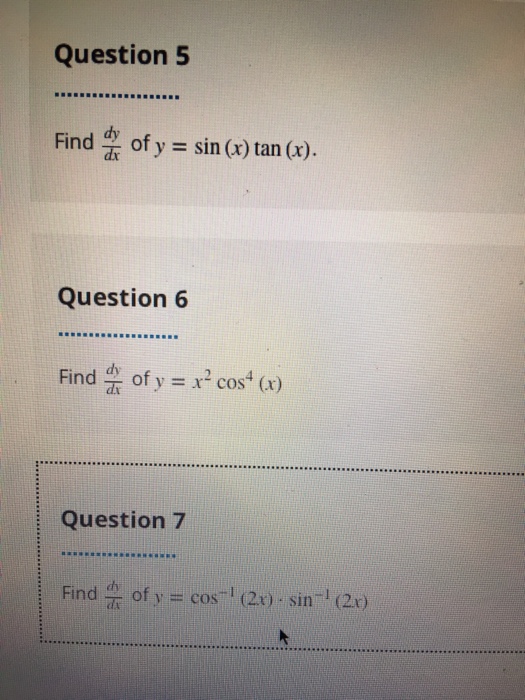



Find Dy Dx Of Y Sin X Tan X Find Dy Dx Of Y Chegg Com



Find Dy Dx If Y Sin 1 6x 4 1 4x 2 5 Sarthaks Econnect Largest Online Education Community



If Y Sin X 0 Then Find Dy Dx Quora




S I N 1 D E R I V A T I V E Zonealarm Results




If Y Sin 1 X 2 1 X 2 1 Sec 1 X 2 1 X 2 1 Then Dy Dx Is Equal To Youtube




If Y Cos 1 1 X 1 X Then Find Dy Dx Youtube
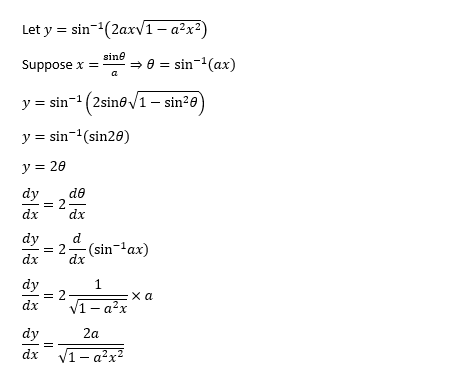



D Dx Sin 1 2ax 1 A 2x 2




If Y Sin 1 2x 2 1 Then Dy Dx



0 件のコメント:
コメントを投稿